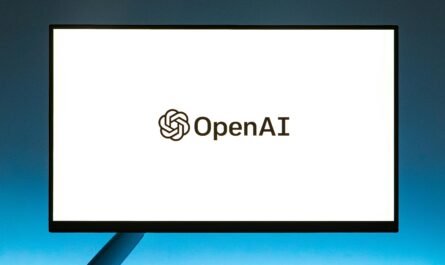
Meta has weeks to tell EU authorities how it will fix the pay model : Meta is given until September 1st to address concerns about consumer protection in the European Union.
The Consumer Protection Cooperation (CPC) Network which is a consortium of authorities that are responsible in the enforcement of EU legislation on protection of consumers. Has become worried over a decision that Meta forced on the users in the region who use Facebook and Instagram from November of last year. The requirement was that users agree to being monitored and profiled for behavioural ad targeting in order to accessing its services free. Or pay Meta monthly fees for access to versions of its services that they claim are completely free of ads.
Meta’s controversial “pay or consent” model has placed Meta at the top of many regulatory radars. The model is currently being investigated from the European Commission. As it believes Meta violates the EU’s Digital Markets Act (DMA). It is believed that the EU is also demanded more details from Meta concerning the “pay or consent” model’s conformity with the DMA’s twin regulation known as the Digital Services Act.
In addition, Meta’s pay or consent option is being reviewed by authorities responsible for data protection such as the Irish Data Protection Commission (DPC). Who oversees the company’s compliance with the EU’s General Data Protection Regulation (GDPR).
Mechanism
The mechanism is now under the control of coordinated actions through the CPC network. That has been examining Meta’s binary option to EU clients since an avalanche of complaints were filed in the last year.
“Meta will have until September 1st, 2024. To respond to the letter sent by CPC network CPC Network and Commission and also to suggest solutions. If Meta fails to make the necessary changes to resolve the issues that were raised. CPC authorities can decide to implement enforcement measures including punishments”. Warned the Commission Monday.
Authorities for consumer protection involved in the coordinated effort believe that certain elements of Meta’s consent system could be “misleading or aggressive practices” according to the Commission news release — however. The EU’s legal standard demands consumers to be informed “upfront with clear, accurate and complete details.”
Their research raises questions about whether the information that Meta provides Meta lets consumers. Understand the consequences of making a choice to make a payment or agree to tracking their rights as consumers.
The CPC authorities, which are being led in this Commission-coordinated action by the French directorate general for Competition. Consumer Affairs and Fraud Prevention. Are also concerned EU consumers may have been exposed to undue pressure to choose rapidly between the two models. I.e. being concerned that they could lose the access they have to their account as well as their contacts network.
Misleading

Particularly, the network raises concerns about Meta’s use of the term “free” when it comes to the content it provides users with when they have to decide to either accept or pay. The CPC thinks that this might be incorrect as Meta demands that users accept the possibility of with their personal information to display them with personalized advertisements if they do not choose be able to afford the ads-free versions of the service.
They also disagree with the other aspects of Meta’s language use in the sense of together vague terms like “your information” in reference to consumers who have personal information; and also stating that those who pay won’t be able to see ads. The CPC claims that users may be able to see ads while engaging with material that is shared on Facebook as well as Instagram by other users on the platform.
The CPC network also charges Meta of causing confusion to users by forcing them to go through various screens within the Facebook/Instagram application or on the web and clicking on hyperlinks that take users to different sections of their Terms of Service or Privacy Policy to learn the way in which their personal preferences, preferences data. And other data that users provide are utilized by Meta to display them with personalized advertisements.
Another concern they have brought up through their letters to Meta is the degree of pressure it’s applying to users. Who always utilized its social media services without charge until it implemented”pay or consent ” model. Which are now unable login to their accounts until they have made a the decision.
CPC
The CPC claims that this doesn’t provide consumers with a pre-warning, enough time. Or an opportunity to evaluate how the decision might affect their contractual relationship with Meta.
Around 20 consumer groups came together to file their initial consumer protection complaints to the CPC Network last November. Eight consumer groups later submitted privacy complaints to Meta’s pay model. Or consent during February and argued that it violates the GDPR, too.
Response
In response to the CPC decision. Meta spokesman Matthew Pollard issued a brief email statement that included. A decision of the top court of the EU this summer concerning a different dispute over competition. “Subscriptions for advertising as alternatives is an established model of business across various sectors. Subscriptions with no ads follow the guidance of the top judge in Europe. We’re confident that it is compliant with European regulations,” the company claims.
Despite all the attention from regulators about Meta’s “pay or consent” decision in the EU and beyond. It’s interesting that Meta is remaining true to its position at present. But, the years of sluggish GDPR enforcement against previous Meta business model decisions. Which were later verified to be in violation in accordance with EU laws It appears that they have become accustomed. To the company’s use of the strategy of buying time.
The CPC network isn’t the Irish DPC However, it is. The Commission directly facilitates dialogue and action on consumer protection. So it will be interesting to know whether there’s a shift in attitude. From Meta concerning “pay or consent” when it comes to this fall.
Although the CPC network cannot in itself issue fines or sanctions on its own however. If the remedies to address the concerns that it is raising do not come through the process of outreach and engagement the national consumer protection authorities may pursue enforcement actions in their own Member States — where they have the power to enforce penalties that can reach 4 percent of total annual turnover. With the number of EU consumer protection authorities have expressed concerns regarding Meta’s “pay or consent” model. Enforcement actions on the issue may be expensive.
Thanks for Reading this article for more information please visit. www.techychunk.com
Q&A
What is Meta’s ‘pay or consent’ model?
It requires users to either consent to data processing for ads or pay a fee to avoid ads.
Why is Meta addressing EU authorities?
The EU demands a solution due to concerns about fairness and legality.
What is the deadline for Meta’s response?
The EU has given Meta several weeks to respond.




